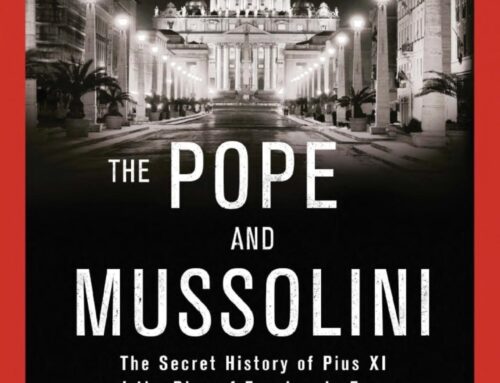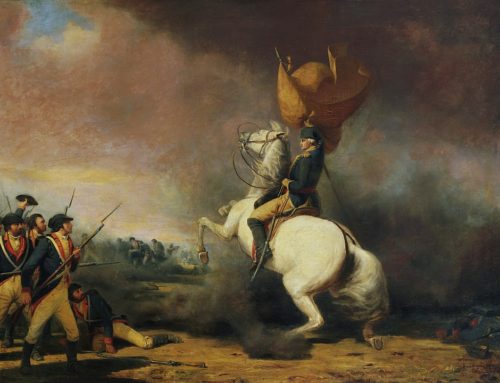History Buffs have always been fascinated about the rationale for Hitler’s disastrous invasion of the Soviet Union on June 22, 1941 rather than pursue a Mediterranean Strategy.
I am currently reading a book called Fateful Choices, Ten Decisions That Changed The World, 1940-1941. The first chapter of the book delves into the mindset of Hitler in articulating his thought process for global dominance. That is, Hitler felt that war with the United States and the Soviet Union was inevitable; moreover, time was running against Germany given the manpower and industrial resources of both the Soviet Union and the United States. In essence, Hitler felt strongly compelled to destroy both the later countries, because their racial and ideological composition contradicted starkly with the Aryan dominance of a National Socialism. Thus, in 1940, after the defeat of France, he was weighing his options on how to implement his global strategy.
While Hitler was clearly delusional by the end of World War II, he possessed formidable reasoning skills in 1940 when he opted to invade the Soviet Union rather than try to eliminate Great Britain by pursuing a Mediterranean strategy.
Certainly, the case for focusing on the Mediterranean had some theoretical appeal to Hitler. First of all, controlling Middle East Oil and British colonies in the Middle East and Africa could have forced Great Britain to seek an armistice with Nazi Germany. That is, Hitler reasoned that Churchill’s opponents would have forced the obstinate Prime Minister to make some accommodation with Nazi Germany, given Britain’s dependence upon Middle East Oil and her belief that the Imperial System was integral to her England’s economic prosperity. Moreover, the United States led by the anglophile Franklin Roosevelt would have faced considerably more internal political opposition to providing Great Britain meaningful military aid, including significant quantities of petroleum to Churchill’s government, if Great Britain lost access to Middle Eastern oil. We must remember than in 1940, many isolationists and “American Firsters” felt that diverting scarce military resources to Great Britain was folly. That is, the first priority of the United States was to build up our own armed capability rather than allocate military aide to a “defeated” Great Britain. The isolationists led by our Ambassador to Great Britain, Joseph Kennedy, and the famous air man, Charles Lindberg, felt that German victory was inevitable. Both of these men felt that Roosevelt was being misled by his Jewish advisors and taking needless to steps to provoke Nazi Germany.
Assuming Hitler could have employed the same resources in pursuing a Mediterranean strategy as Operation Barbarossa, Hitler might have theoretically knocked Britain out of the war. That is, between the Baltic and Black Sea, the German forces were arranged in three massive army groups, comprising seven armies, four Panzer groups, and three air fleets. Poised on the frontiers were some 3,200,000 men—148 divisions, including nineteen Panzer divisions and twelve motorized fighting vehicles, 7184 artillery pieces and 1830 aircraft.
Therefore, why did Hitler make this monumental error and not focus on the Mediterranean?
Hitler did not seriously follow up a Mediterranean strategy for several reasons. First of all, Hitler could attack the Soviet Union using almost exclusively German divisions in a land attack. In a nutshell, Hitler did not really require allies to launch Project Barbarossa. On the contrary, for Hitler to be successful in the Mediterranean he needed to cooperation of France, Italy, and Spain, who had dramatically different political objectives. That is, the German navy required supplementary help from the French Navy and the Italian Navy to defeat the British navy.
Secondly, political realities provided significant obstacles to Germany mounting a successful Mediterranean campaign. That is, France, Italy, and Spain possessed diametrically competitive foreign policy objectives that Hitler could not easily solve. For example, Italy was very suspicious of any attempt to rebuild France given their competitive spheres of influence in the Mediterranean. Franco demanded Gibraltar, Algeria, and Morocco as well as unreasonable cache of arms to join the Axis cause. Hitler was unwilling to allocate significant resources to Spain to secure her support. Moreover, France would have never accepted the loss of her colonies, especially Algeria and Morocco. Finally, the weakest link in the chain was Italy. As Churchill aptly commented “Italy’s appetite is too big, given her bad teeth.” That is, Hitler’s alliance with Mussolini forced Hitler to allocate troops in theatres that were peripheral to German’s key objectives. Hitler spoke out forcefully that Mussolini’s invasion of Greece was a colossal error, particularly given that Germany had to send significant number of troops to help out the beleaguered Italians in their Greek campaign. Despite the fact that Mussolini had failed to inform in advance the Fuhrer of his invasion plans for Greece, Hitler felt empathy for his downtrodden Fascist ally, and diverted important resources to shore up the Italian invasion of Greece. Furthermore, Great Britain crushed the Italian army in North Africa, requiring again Hitler to allocate significant manpower to help out the Italians.
Thirdly, after the Nazi quick defeat of France, Hitler’s reputation of “invincibility” and “genius” stifled real alternative discussions by the German military. In the case of the army, Jodl, the supreme army commander, was an ardent Nazi who Hitler mesmerized. Thus, Jodl failed to present the case for a Mediterranean campaign despite the advice of his underlings. Goring, the head of the air force, was a sycophant, who preferred living a hedonistic lifestyle than promote any intellectual discord with Hitler. Only Admiral Raeder made a meaningful attempt to focus Hitler’s attention on the advantages of the Mediterranean strategy which would provide Germany with Middle East oil, and African colonies. However, the German navy was the weakest arm of the German military, and therefore his arguments did not have the weight of either the army or the air force. On the other hand, Hitler cunningly prevented debate of his military policies; that is, he generally ordered his military advisors rather than soliciting their opinions. Hitler also tended to have one on one discussions with his commanders rather than have the type of dialogue Roosevelt and Churchill engaged in.
Fourthly, Hitler felt strongly that the Bolshevik Soviet Union, led by a combination of Jews and Slavs, both inferior races, was so “rotten’ that all he had to do was “kick the door in” to defeat Mother Russia. Moreover, Hitler coveted the Ukraine which he felt would provide the agricultural production capacity to allow Germany’s population to increase substantially. Moreover, withholding the Ukraine’s agricultural production from the Slavs would diminish the latter’s population. In essence, Hitler was obsessed that world domination required the subjugation of the Soviet Union with its superior manpower. Moreover, without the Ukraine, Germany could not support the manpower necessary for world domination. In simple terms, in 1940, Aryans were outnumbered almost two to one by Slavs; moreover, the later enjoyed a faster birth rate. Thus, without the Ukraine, war with the Soviet Union was a ticking time bomb, with the later gaining strength over time. Hitler drew the conclusion from the miserable efforts of the Russians against Finland in 1939 that Stalin’s purges of his armed forces had emasculated the Red Army.
Lastly, by September of 1940, Hitler had abandoned any meaningful plans of invading Great Britain. Instead, Germany would force Britain to make an accommodation with Germany by defeating the Soviet Union. In essence, Churchill’s lifeline was the United States and the Soviet Union. Eliminating the Soviet Union, would undermine meaningfully Churchill’s “delusion” that the British Empire could successfully fight Germany.



